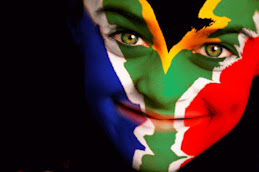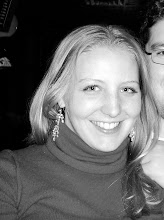South Africa Orientation (26 August – 8 September)
 As our country coordinators, Brian and Kristen said, "The best way to learn about South Africa is from South Africans." This may seem like an obvious statement, but it’s not as simplistic as it sounds. Our first few days were in Johannesburg. We then traveled east to Pietermaritzburg, where we spent the
As our country coordinators, Brian and Kristen said, "The best way to learn about South Africa is from South Africans." This may seem like an obvious statement, but it’s not as simplistic as it sounds. Our first few days were in Johannesburg. We then traveled east to Pietermaritzburg, where we spent the  remainder of orientation. There were also day trips to Pretoria, the capital, and Durban. No amount of reading, whether from Fodor’s travel guide or Nelson Mandela’s autobiography, can really prepare you for an immersion into South Africa culture. No number of workshops on cross-cultural understanding or YAGM policy will teach you how to live and work in another context thousands of miles from the one you have known your entire life. There is nothing that can replicate the hauntingly beautiful a cappella singing in a church service, the story of a volunteer caring for her neighbor with HIV/AIDS, or the raw power of the Indian Ocean on the eastern coast. The best way to learn about South Africa is from South Africans–to listen to their stories and to share in their experiences.
remainder of orientation. There were also day trips to Pretoria, the capital, and Durban. No amount of reading, whether from Fodor’s travel guide or Nelson Mandela’s autobiography, can really prepare you for an immersion into South Africa culture. No number of workshops on cross-cultural understanding or YAGM policy will teach you how to live and work in another context thousands of miles from the one you have known your entire life. There is nothing that can replicate the hauntingly beautiful a cappella singing in a church service, the story of a volunteer caring for her neighbor with HIV/AIDS, or the raw power of the Indian Ocean on the eastern coast. The best way to learn about South Africa is from South Africans–to listen to their stories and to share in their experiences.
 A common theme from Chicago was that the “success” of your service is contingent upon how you choose to engage. I don’t think my previous conception a comfort zone exists anymore, because I’ve already consciously and unconsciously stepped outside it too many times. (That’s a really good thing.) I acknowledge that we all live in boxes (our prejudices, fears, misunderstandings, etc.) and place other people in boxes, sometimes intentionally but often unintentionally. From Day 1 landing in Joburg, our SA country group has been asked to “kick the box.” We’re not only expected to listen intently, but to think critically. This year is about pushing boundaries and taking risks (of course not in terms of my physical safety Mom and Dad) but socially, emotionally, and spiritually. Orientation taught us how to engage within our context, to ask questions.
A common theme from Chicago was that the “success” of your service is contingent upon how you choose to engage. I don’t think my previous conception a comfort zone exists anymore, because I’ve already consciously and unconsciously stepped outside it too many times. (That’s a really good thing.) I acknowledge that we all live in boxes (our prejudices, fears, misunderstandings, etc.) and place other people in boxes, sometimes intentionally but often unintentionally. From Day 1 landing in Joburg, our SA country group has been asked to “kick the box.” We’re not only expected to listen intently, but to think critically. This year is about pushing boundaries and taking risks (of course not in terms of my physical safety Mom and Dad) but socially, emotionally, and spiritually. Orientation taught us how to engage within our context, to ask questions.
Engagement is not always an easy thing. Engagement is introducing yourself to the mama (older woman, grandmother type) sitting next you at a church function that sings better in Zulu than you ever will and complimenting her as such. Engagement is not allowing your eyes to glaze over through a talk about mission in the context of globalization from a professor at the University of KwaZulu-Natal (It was actually really interesting.), but really thinking about how what this person has to say is going to affect your year. Engagement is taking the risk that leading a game “Red Light Green Light” when visiting a township crèche (preschool) might turn into complete chaos. (Chaos with lots of eager four-year-olds has its fun moments.) Engagement is not only showing up but being present. Therein lies what I think will be the greatest challenge but also the biggest success of my year here in South Africa.
woman, grandmother type) sitting next you at a church function that sings better in Zulu than you ever will and complimenting her as such. Engagement is not allowing your eyes to glaze over through a talk about mission in the context of globalization from a professor at the University of KwaZulu-Natal (It was actually really interesting.), but really thinking about how what this person has to say is going to affect your year. Engagement is taking the risk that leading a game “Red Light Green Light” when visiting a township crèche (preschool) might turn into complete chaos. (Chaos with lots of eager four-year-olds has its fun moments.) Engagement is not only showing up but being present. Therein lies what I think will be the greatest challenge but also the biggest success of my year here in South Africa.
 As our country coordinators, Brian and Kristen said, "The best way to learn about South Africa is from South Africans." This may seem like an obvious statement, but it’s not as simplistic as it sounds. Our first few days were in Johannesburg. We then traveled east to Pietermaritzburg, where we spent the
As our country coordinators, Brian and Kristen said, "The best way to learn about South Africa is from South Africans." This may seem like an obvious statement, but it’s not as simplistic as it sounds. Our first few days were in Johannesburg. We then traveled east to Pietermaritzburg, where we spent the  remainder of orientation. There were also day trips to Pretoria, the capital, and Durban. No amount of reading, whether from Fodor’s travel guide or Nelson Mandela’s autobiography, can really prepare you for an immersion into South Africa culture. No number of workshops on cross-cultural understanding or YAGM policy will teach you how to live and work in another context thousands of miles from the one you have known your entire life. There is nothing that can replicate the hauntingly beautiful a cappella singing in a church service, the story of a volunteer caring for her neighbor with HIV/AIDS, or the raw power of the Indian Ocean on the eastern coast. The best way to learn about South Africa is from South Africans–to listen to their stories and to share in their experiences.
remainder of orientation. There were also day trips to Pretoria, the capital, and Durban. No amount of reading, whether from Fodor’s travel guide or Nelson Mandela’s autobiography, can really prepare you for an immersion into South Africa culture. No number of workshops on cross-cultural understanding or YAGM policy will teach you how to live and work in another context thousands of miles from the one you have known your entire life. There is nothing that can replicate the hauntingly beautiful a cappella singing in a church service, the story of a volunteer caring for her neighbor with HIV/AIDS, or the raw power of the Indian Ocean on the eastern coast. The best way to learn about South Africa is from South Africans–to listen to their stories and to share in their experiences. A common theme from Chicago was that the “success” of your service is contingent upon how you choose to engage. I don’t think my previous conception a comfort zone exists anymore, because I’ve already consciously and unconsciously stepped outside it too many times. (That’s a really good thing.) I acknowledge that we all live in boxes (our prejudices, fears, misunderstandings, etc.) and place other people in boxes, sometimes intentionally but often unintentionally. From Day 1 landing in Joburg, our SA country group has been asked to “kick the box.” We’re not only expected to listen intently, but to think critically. This year is about pushing boundaries and taking risks (of course not in terms of my physical safety Mom and Dad) but socially, emotionally, and spiritually. Orientation taught us how to engage within our context, to ask questions.
A common theme from Chicago was that the “success” of your service is contingent upon how you choose to engage. I don’t think my previous conception a comfort zone exists anymore, because I’ve already consciously and unconsciously stepped outside it too many times. (That’s a really good thing.) I acknowledge that we all live in boxes (our prejudices, fears, misunderstandings, etc.) and place other people in boxes, sometimes intentionally but often unintentionally. From Day 1 landing in Joburg, our SA country group has been asked to “kick the box.” We’re not only expected to listen intently, but to think critically. This year is about pushing boundaries and taking risks (of course not in terms of my physical safety Mom and Dad) but socially, emotionally, and spiritually. Orientation taught us how to engage within our context, to ask questions.Engagement is not always an easy thing. Engagement is introducing yourself to the mama (older
 woman, grandmother type) sitting next you at a church function that sings better in Zulu than you ever will and complimenting her as such. Engagement is not allowing your eyes to glaze over through a talk about mission in the context of globalization from a professor at the University of KwaZulu-Natal (It was actually really interesting.), but really thinking about how what this person has to say is going to affect your year. Engagement is taking the risk that leading a game “Red Light Green Light” when visiting a township crèche (preschool) might turn into complete chaos. (Chaos with lots of eager four-year-olds has its fun moments.) Engagement is not only showing up but being present. Therein lies what I think will be the greatest challenge but also the biggest success of my year here in South Africa.
woman, grandmother type) sitting next you at a church function that sings better in Zulu than you ever will and complimenting her as such. Engagement is not allowing your eyes to glaze over through a talk about mission in the context of globalization from a professor at the University of KwaZulu-Natal (It was actually really interesting.), but really thinking about how what this person has to say is going to affect your year. Engagement is taking the risk that leading a game “Red Light Green Light” when visiting a township crèche (preschool) might turn into complete chaos. (Chaos with lots of eager four-year-olds has its fun moments.) Engagement is not only showing up but being present. Therein lies what I think will be the greatest challenge but also the biggest success of my year here in South Africa. 

No comments:
Post a Comment